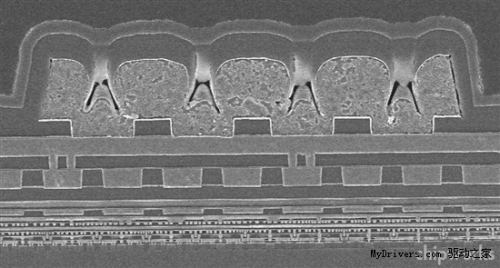 Both AMD's Southern Islands and NVIDIA's Kepler have confirmed that they will use TSMC's new 28nm technology, but due to process maturity and release strategy, they are not exactly the same 28nm process. .
Both AMD's Southern Islands and NVIDIA's Kepler have confirmed that they will use TSMC's new 28nm technology, but due to process maturity and release strategy, they are not exactly the same 28nm process. . At the beginning, both of us naturally wanted to use the 28nm HKMG HP high-performance version, but unfortunately TSMC is not very competitive. This process is still very immature and basically will not be ready until the first quarter of 2012.
AMD obviously can not wait so long, so he switched to another version: 28nm HKMG HPL. This process also uses the HKMG (high-k metal gate) technology, taking into account both high performance and low power consumption. The report shows that the first batch of Xilinx Kintex-7 FPGA chips put into TSMC's new technology is used in this version.
In fact, TSMC's 28nm process also has a third version of 28nm SiON LP, which is a true low-power process and does not have HKMG. Instead, it continues to use the SiON insulation layer in the previous 40nm process, which is only suitable for small chips with low power consumption. .
NVIDIA Kepler has to wait for 28nm HKMG HP high-performance technology due to the high frequency of stream processors and overall power consumption, coupled with rumored performance not reaching expectations, postponed until the first half of 2012 It is natural.
The layout of AMD Radeon HD 7000 series graphics cards is already clear. At the bottom is the Lombok Radeon HD 7670/7570, which continues to use the VLIW4 architecture, which is mainly used to accelerate with the APU. Both the Thames Radeon HD 7790/7850/7870, the Tahiti Radeon HD 7970/7950, and the single-card dual-core New Zealand Radeon HD 7990 will use the next generation of new graphics and computing architectures. High-end models and new architectures generally require high-performance processes to assist. Does AMD dare to use mid-range new processes for them, mean power consumption is very low?
In terms of release progress, Lomlok low-end core may be the first to be released, after all, it is best dealt with from the process. Don't know if other high-end cores will switch to true high-performance technology later?
Speaker Box Co., Ltd. , http://www.nsspeaker.com